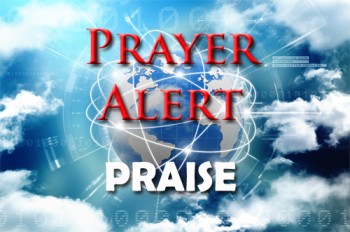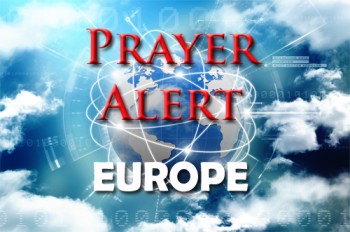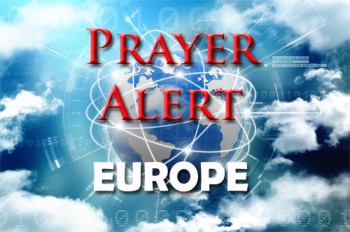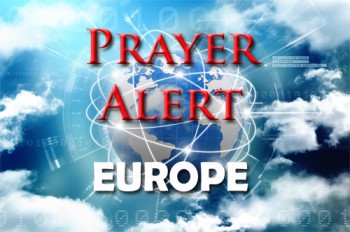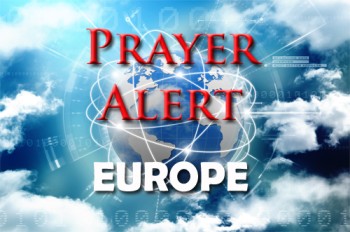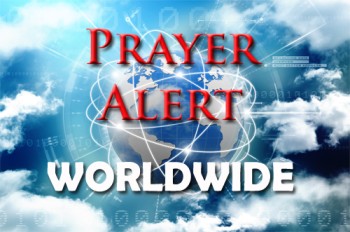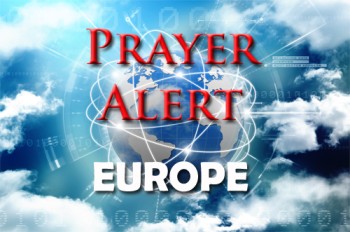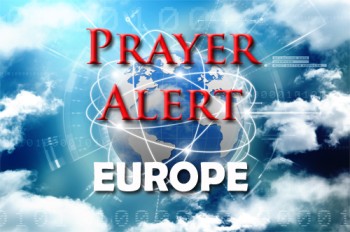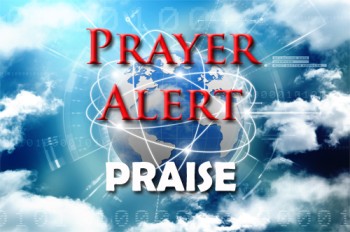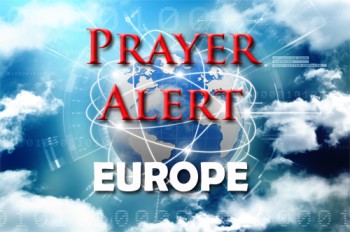Displaying items by tag: Europe
Hope amidst fear
Bible Society staff are taking humanitarian aid and Bibles to cities under heavy attack in Ukraine to provide ‘hope amidst fear’. With local churches they take food, medicines and Bibles to homes and to bomb shelters. In one bomb shelter in a school, people read Psalm 91 day and night. War has brought many changes to Ukraine’s Bible Society but they meet every challenge. Their bookshelves now store medicine, and the team travel off-road in medical convoys to bring Bibles, scripture-based resources, humanitarian aid and pastoral care to the most devastated places. They say, ‘We are sharing living bread and physical bread.’
Europe’s drought and cost of living
Rivers drying up and farmland parched: Europe’s water scarcity is affecting lives and businesses. Scientists warn the current European drought could become its worst in over 500 years. Water scarcity has hit 60% of the continent from Italy to the UK. An unusually dry winter and scorching summer heat reduced rivers to rivulets. The historic water reserve lows have forced governments to restrict supplies, seriously affecting many sectors from agriculture to shipping. In July heatwaves shaved 0.5% off Europe’s annual GDP. Wildfires destroyed crops across Italy, Greece, France, and Spain, and energy prices are up because of the war in Ukraine. The Global Commission on Adaptation said an estimated investment of $800m in climate programmes could save poor nations up to $16bn every year.
Ukraine: nuclear plant situation ‘approaches critical’
NATO is the latest international organisation calling for UN inspectors to be allowed into Zaporizhzhia nuclear power plant, saying its seizure posed a serious threat to Ukraine and neighbouring countries. For two weeks there has been heavy shelling on and around the plant, with both sides blaming each other. Officials say Zaporizhzhia could be cut off from power. Moscow is redirecting electricity to Crimea. Ukraine says the situation is ‘approaching critical’. Unable to force the Russians from Europe's biggest nuclear power plant, Ukraine is preparing for the worst. At a supermarket car park emergency workers wearing yellow hazmat suits are practising cleaning drills in the event of radioactive contamination. The car park is also where Ukrainians fleeing Russian-occupied territories first arrive. There are queues of cars with people and full suitcases.
Germany: Rhine drying up
Swathes of the Rhine riverbed are exposed, while a few commercial vessels slowly navigate the channel of water that is left in one of Europe's great working rivers. Industry relies on barges to fetch and carry raw materials and finished products to and from the power plants and factories that line the riverbank. Germany’s main industry lobby group has warned that factories may have to limit production or halt it completely because plunging water levels on the river are making it harder to transport cargo. The water is already too low to allow some of the larger vessels through. Others have reduced their cargo to lighten the load so that they sit higher in the water. Experts warn that the low water could significantly damage Germany's economy.
France: ‘We are waiting for rain’
Hervé Trentin, a veteran firefighter, stood on the edge of a charred section of forest wiping tears from his cheeks. It was the second time he had cried that morning. He and his team were moving around an area south of Bordeaux trying to stay ahead of a megafire. Their job was burning the forest, to create firebreaks - a tactic they are trained to master. They are the only ones in the region capable of doing the job. Trentin grew up there, and setting his home soil alight was disturbing. He said ‘The forest needs over thirty years to recover.’ In July a megafire appeared to be under control, but the heat remained in the earth, creating a ‘zombie fire’ that re-emerged and accelerated new fires in the dry conditions.
North Korea ‘ready to send 100,000 soldiers’ to help Russia
Russian military expert Igor Korotchenko said on state TV: ‘There are 100,000 North Korean volunteers prepared to come and take part in the war in Ukraine. North Korean builders are ready to work alongside ours to repair war damage. If North Korean volunteers with their artillery systems, wealth of experience with counter-battery warfare, and large calibre multi-launch rocket systems, want to participate in the conflict, well, let’s give the green light to their volunteer impulse.’ A South Korean report stated that the North is already preparing to dispatch its workers to the pro-Russian Donbas region in eastern Ukraine. Calling the North Korean troops ‘resilient, undemanding and motivated’, a Russian journalist said that the Kremlin ‘should not be shy in accepting the hand extended to us by Kim Jong-un’.
Russia: 'blackmailing the world'
Ukraine's nuclear agency Enerhoatom says the Russians are ‘blackmailing the entire world’ with threats to blow up the Zaporizhzhia power plant. In a post on messaging app Telegram, Enerhoatom says Maj Gen Valery Vasiliev - the head of Russia's radiation, chemical and biological defence forces - has said, ‘There will be either Russian land or a scorched desert. We have mined all the important facilities of the Zaporizhzhia nuclear power plant.’ UN secretary general António Guterres has called for international inspectors to be given access to the power plant, after Ukraine and Russia accused each other of shelling the site on 7 August. One of Putin's closest allies, former president Medvedev, has been telling the media that Russia will achieve its aims in the conflict in Ukraine on its own terms. He warns the West has a long-term plan to destroy Russia.
Ukraine: Wagner mercenaries
Mercenary group Wagner does not officially exist, but billboards in Russia’s cities depicting three men in military uniform next to the words ‘Wagner2022.org’ are inviting fighters to join its ranks in Ukraine. They have transformed from a secretive mercenary organisation to an extension of Russia’s efforts in Ukraine. Wagner was established in 2014 to support pro-Russian separatists in eastern Ukraine and is funded by a businessman linked to Putin. On paper, it doesn’t exist, with no company registration, tax returns, or organisational chart to be found. Russia’s senior leadership, including Vladimir Putin, has repeatedly denied any connections between Wagner and the state. Currently Wagner has lowered recruitment standards, hiring convicts and blacklisted individuals, which impacts military effectiveness. Before the conflict less than 30% of Wagners were professionals. Now this recruitment push threatens to diminish its overall military standards.
Sweden: 300 church plants
Since 2000 there have been 300 churches planted across Sweden by other nations. The Nigerian Redeemed Christian Church of God has 40 Swedish church plants. Their vision is to plant worshipping communities within five minutes' distance from each other. Also from Nigeria there are church plants from Deeper Life Bible, Mountain of Fire and Miracles Ministries. There are plants from Ghanaian Church of Pentecost where the worship language is English, Ghanaian Swahili and Swedish. Chile’s International Mission Church gathers 1,500 people for Sunday services in Stockholm. For Sweden, this is a very big church. There are also congregations with Ethiopian, Eritrean, Iranian, or Afghan connections that are generally closer to the established Swedish denominations.
Ukraine: pray for mission work
Since the USSR broke up, Ukrainians have experienced freedom and democracy, but more importantly they have experienced freedom to preach the good news, resulting in masses of people being saved and many church plants. Ukraine is also a door for the Gospel to other, surrounding nations. Pray for the door to stay open and fulfil the command to ‘go into the world and preach the Gospel’. Pray for the work of Operation Mobilisation in Ukraine as it connects humanitarian aid with those in need. Pray particularly for traumatised displaced children who are receiving small stuffed baby tigers, with a pocket that holds an mp3 player of 38 recordings in Ukrainian for 3- to 11-year-olds. The stories point them to Father God and Jesus, with an emphasis on trauma relief. Please pray for God’s anointing on a team of youth workers in Vinnytsia organising six-day camps for traumatised children during August.
